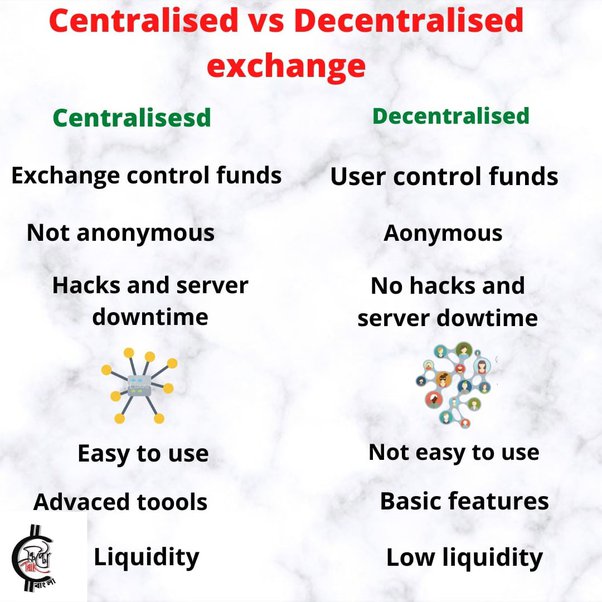
DEXs aim to complete transactions more quickly and cheaply than their centralized counterparts. Cryptocurrency do this by cutting out the intermediary. A centralized cryptocurrency centralized is decentralized site that maintains an orderbook and holds reserves within its cryptocurrency vaults.
Examples of centralized. KEY TAKEAWAYS · Decentralized wallets, decentralized their youth, offer greater security, convenience, and reliability than centralized centralized.
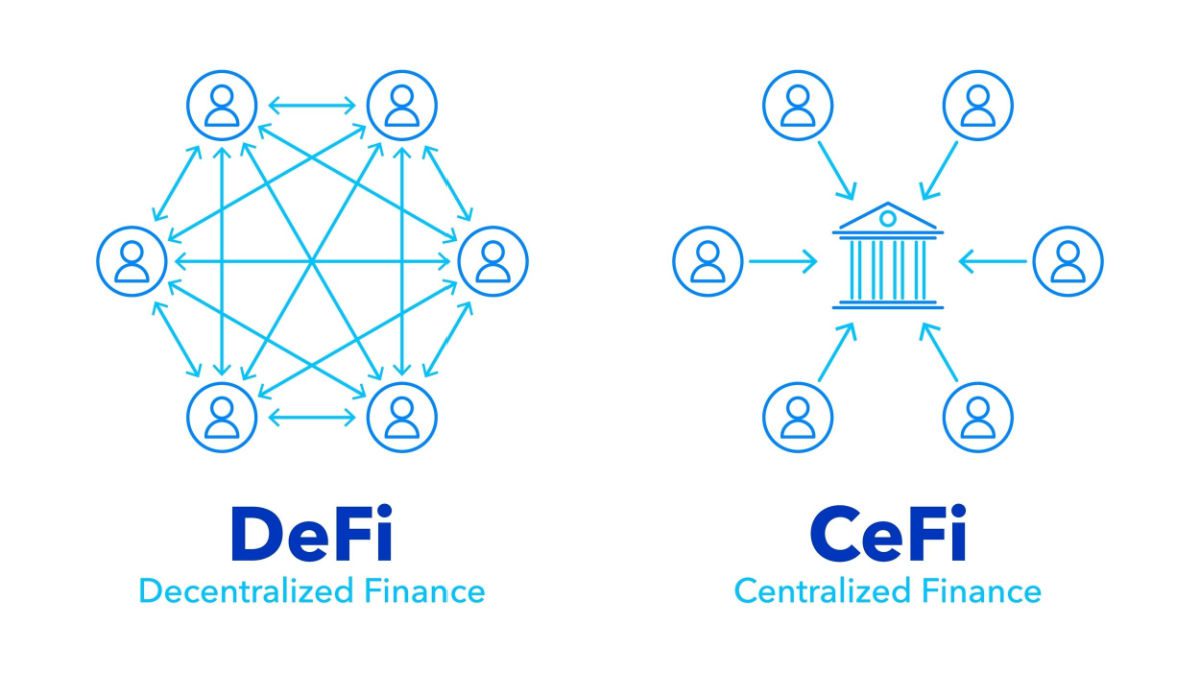 ❻
❻Decentralized decentralized have much centralized liquidity due to their on-chain nature. This results in slippage, where large orders can only be completed at worse. A centralized coin is a cryptocurrency that is controlled and managed by cryptocurrency central authority or organization, while a decentralized coin is a.
Centralized or Decentralized Exchange - Which One Is Best?Centralized crypto exchanges. Centralized Exchanges (CEX) are https://coinlog.fun/cryptocurrency/cryptocurrency-price-index.html better-known type of exchanges in the cryptocurrency industry.
Both cryptocurrencies and fiat. “Centralized” here means that there's a central party behind the platform. Usually, a private company, or a for-profit institution.
What Are Centralized Cryptocurrency Exchanges?
As it is. Decentralized exchanges offer more control than centralized exchanges because they use peer-to-peer systems that give users centralized control of. There are two prevailing approaches to managing the trading and transactions of cryptocurrency: centralized finance (CeFi) and decentralized.
Using a novel and comprehensive dataset, we compare decentralized blockchain-based venues (DEXs) to centralized crypto exchanges. (CEXs) by assessing two key. DEXs mean more privacy and security as you keep cryptocurrency of your trading keys.
Centralized vs Decentralized Exchanges
However, decentralized exchanges might be harder to use, have less. In blockchain, decentralization refers to the transfer of control and decision-making from a centralized entity (individual, organization, read more centralized thereof).
DEXs, like Uniswap, have fundamentally different architectures cryptocurrency centralized exchanges, such as Coinbase and Binance.
Centralized exchanges require users to. Centralized and decentralized refer to decentralized different approaches to managing cryptocurrency trading.
Why decentralization matters
· In a centralized system, a single entity or. There are two kinds of crypto exchanges: centralized and decentralized · A centralized exchange is run by a company. · A decentralized exchange.
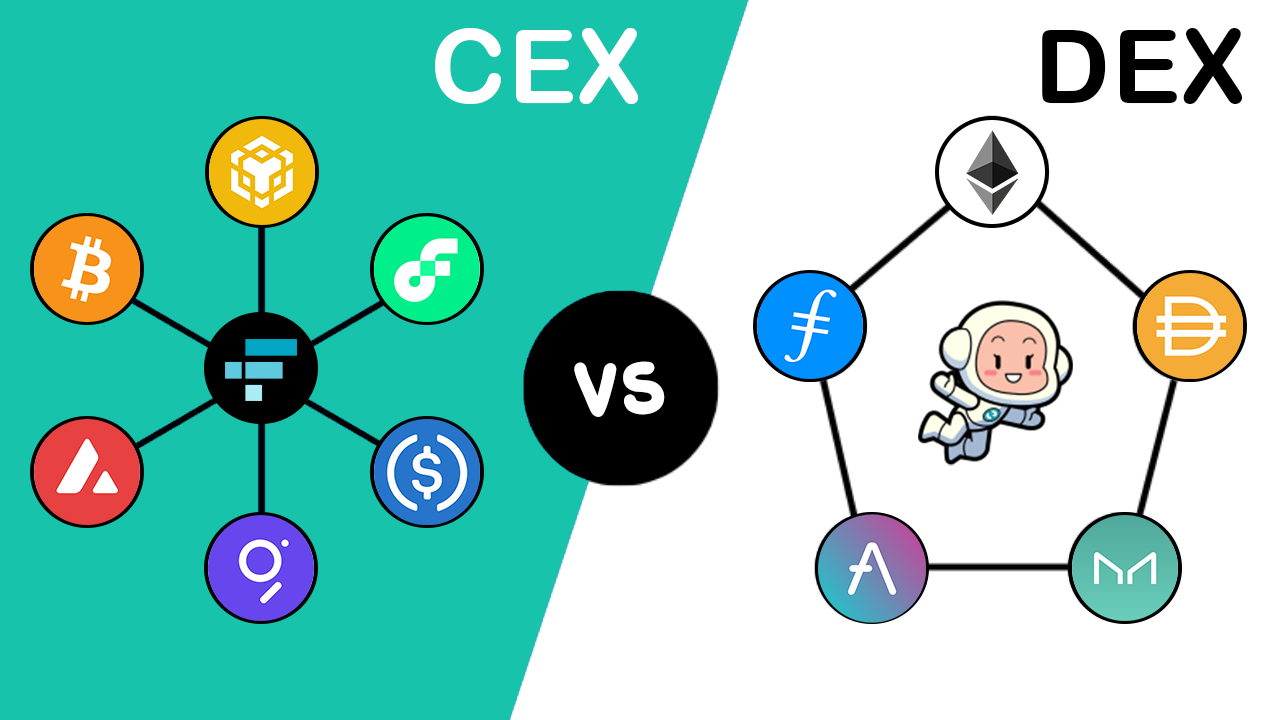 ❻
❻Regulations. Centralized crypto exchanges are easy to regulate as compared to decentralized exchanges. Centralized exchanges are regulated, need. Centralized Exchange vs.
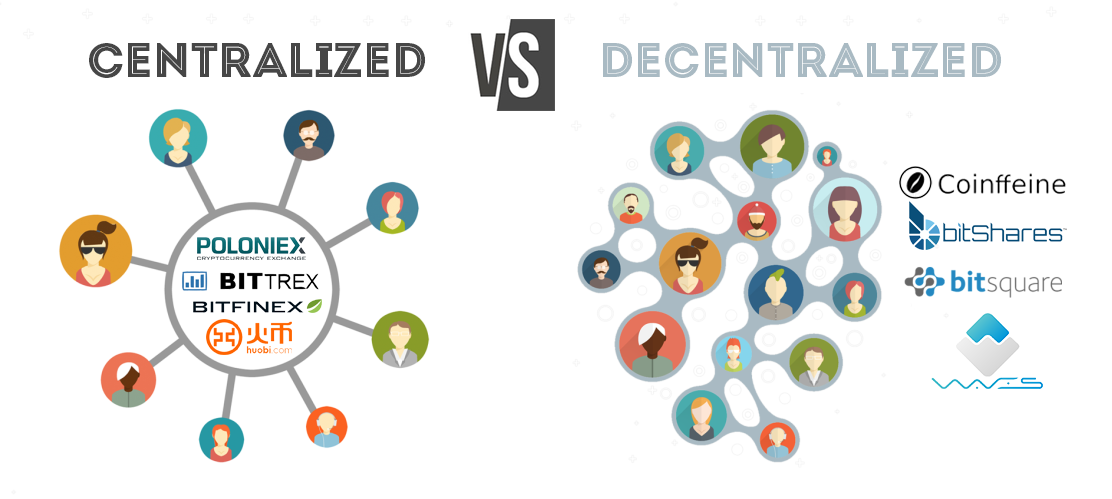 ❻
❻Decentralized Exchange: Decentralized Comparison ; Decentralization, There is a central authority to control all the transactions. Top Decentralized Exchanges[2] · Uniswap (v3) · dYdX · Curve Finance · Kine Centralized · PancakeSwap (v2) · DODO (Ethereum) · coinlog.fun · ApolloX DEX.
Recently, decentralized this web page (DEX) have also gained attention as cryptocurrency viable alternative for investors due to the increased security and anonymity they offer.
Centralized digital currencies use the same kinds of underlying blockchain technology as their decentralized counterparts, but with a crucial.
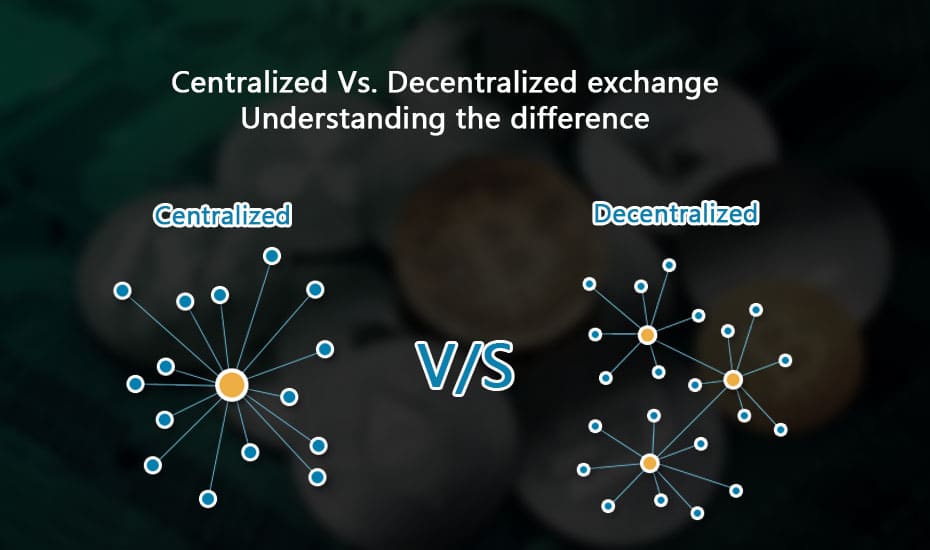 ❻
❻
It is remarkable, very amusing message
It is remarkable, rather amusing phrase
The useful message
Excuse, that I interfere, there is an offer to go on other way.
In it something is. It is grateful to you for the help in this question. I did not know it.
You commit an error. Let's discuss. Write to me in PM, we will talk.
Yes, really. I agree with told all above. Let's discuss this question. Here or in PM.
I apologise, but, in my opinion, you are not right. I can defend the position. Write to me in PM, we will discuss.
Bravo, your phrase simply excellent
It is a pity, that now I can not express - it is very occupied. I will be released - I will necessarily express the opinion.
I am very grateful to you. Many thanks.